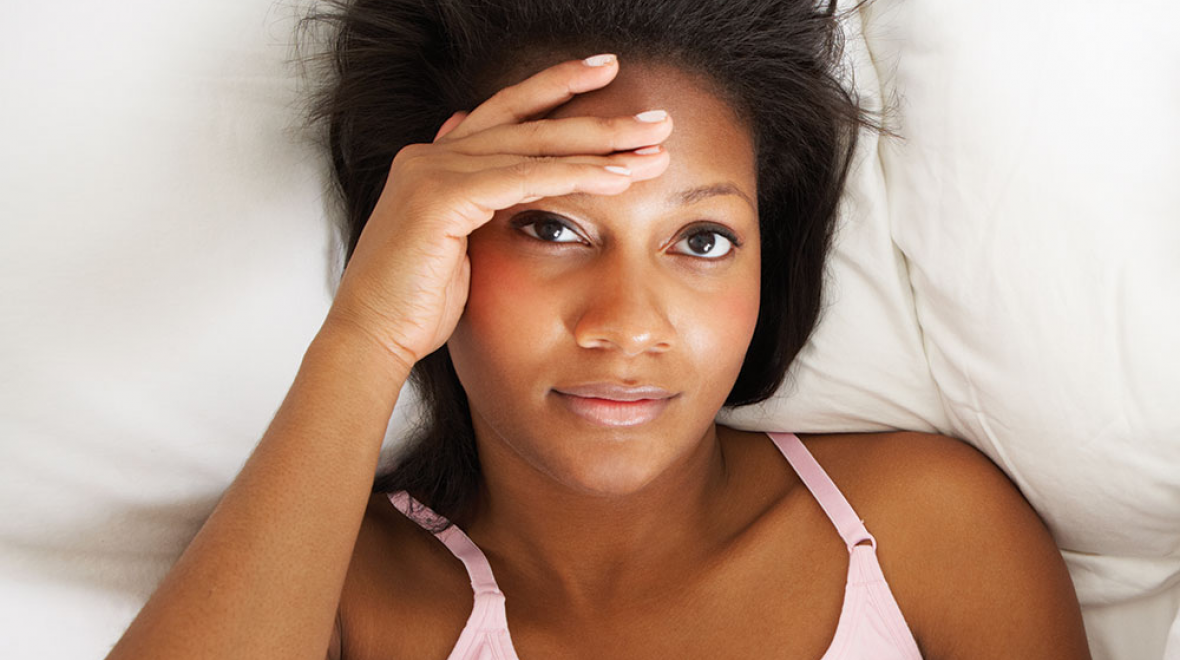
Editor's note: This article was sponsored by Overlake Medical Center and Clinics.
After the birth of each of my three kids, I looked forward to the normal milestones: coming home from the hospital, the first family stroll around the neighborhood, early coos and grins. Not quite as appealing: sex with my partner. That’s because, after hours of labor, the otherworldly intensity of pushing out a human and a few postpartum stitches, my privates weren’t exactly ready for action. Even after a month or two of healing, I was afraid sex would hurt, and it did.
Women everywhere share my pain. Doctors call it female sexual dysfunction (FSD), a broad term that encompasses painful sex, low arousal and difficulty achieving orgasm, and it happens to 40 percent of women in the U.S. and around the world.
It’s not limited only to moms who’ve given birth vaginally, explains Dr. Julie LaCombe, urogynecology specialist with Overlake Medical Center Pelvic Health Clinic. Women who have never given birth and those who have cesarean births can experience the same symptoms. While vaginal childbirth is a risk factor for sexual dysfunction, things such as smoking, menopause and chronic constipation can also increase your chances, along with high-impact sports, such as distance running and past sexual trauma or abuse.
Painful sex doesn’t hurt just between the sheets. New research links painful sex to problems with physical and mental health, including depression and relationship issues. Women who experience pain during sex often also have related problems, such as urine leaks, which can wreak havoc on their fitness pursuits (goodbye, running and step aerobics!) and their self-esteem, says Sagira Vora, MPT, a physical therapist with Overlake specializing in women’s pelvic health.
Still, research tells us that the vast majority of women don’t seek help. And even when women do mention painful sex to their doctors, they’re often told to simply accept these issues as the natural effects of childbirth or aging, says LaCombe. “I get frustrated with the message that women need to just expect this to happen, and that it’s normal, because it’s not.”
Behind the ouch
So what is normal? While some down-under tenderness is typical after labor and birth, the vagina and perineum should heal by six to eight weeks after giving birth, and sex shouldn’t be painful, LaCombe says. But for new moms, and women in general, a number of underlying health issues can make sex hurt.
It’s easy to assume that painful sex signals a problem with the vagina, but the vagina may not be the source of pain during sex, says LaCombe. Problems with any of the pelvic organs, including the bladder, rectum and colon or the pelvic joints, can create pain during intercourse.
Bowel problems, such as constipation, are a less appreciated source of sexual discomfort; a clogged colon crowds other pelvic organs, such as the bladder and vagina and can make sex hurt — a lot. “We see women who can’t have intercourse because of this; it’s just too painful,” LaCombe says.
Low estrogen, common in breastfeeding mothers and menopausal women, can also increase sexual discomfort by thinning and drying vaginal tissues, LaCombe says. She often recommends a cream containing a small dose of estrogen, which boosts hormone levels just enough to improve symptoms without having an impact on breastfeeding.
Multimodal therapy
Tension in the pelvic floor muscles, which act as a so-called “hammock” supporting the pelvic organs, is another common source of pain, says Vora. Over a course of six to eight sessions of pelvic-floor physical therapy, she helps women identify and relax these muscles, which can spasm painfully when they’re too tight, leading to pain during sex.
And you may want to question those Kegel exercises: The well-known vaginal contractions are recommended for women with weak pelvic floor muscles, but not for those with too much tension. For those women, Kegels can worsen their sexual pain, says Vora.
Pelvic organ prolapse, or POP, can cause painful intercourse when pelvic organs, often the bladder, drop out of place and strain the vagina. About half of women will experience some degree of POP during their lifetime, says Sherrie Palm, founder and executive director of the Association for Pelvic Organ Prolapse Support. Childbirth is the leading cause of POP, but women aren’t screened for prolapse during postpartum checkups, so most don’t know they have a problem until unpleasant symptoms, such as incontinence, pelvic aches and painful sex, show up.
The bottom line: Don’t wait to get help when sex hurts, says LaCombe. Even one episode of sexual pain can create fear and tension, leading to more pain and more resistance. (She sometimes refers women to an Overlake therapist to talk through emotional issues that can contribute to sexual pain.)
There’s good news, though. Painful postpartum sex is almost completely curable, says Vora. “Almost always, it’s an injury to the pelvic floor, and just like any other sprain or strain, it heals. You just have to give it time.”











